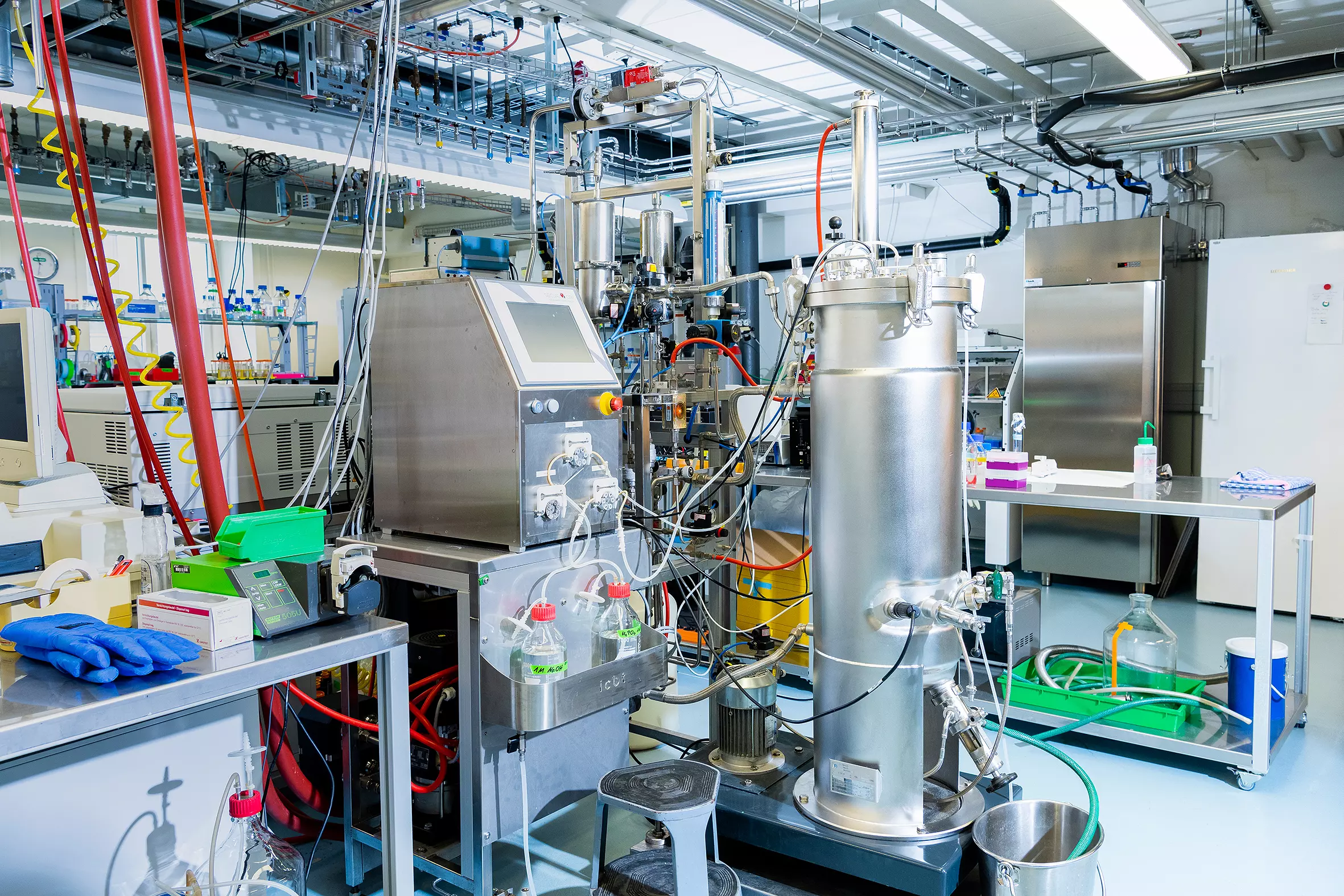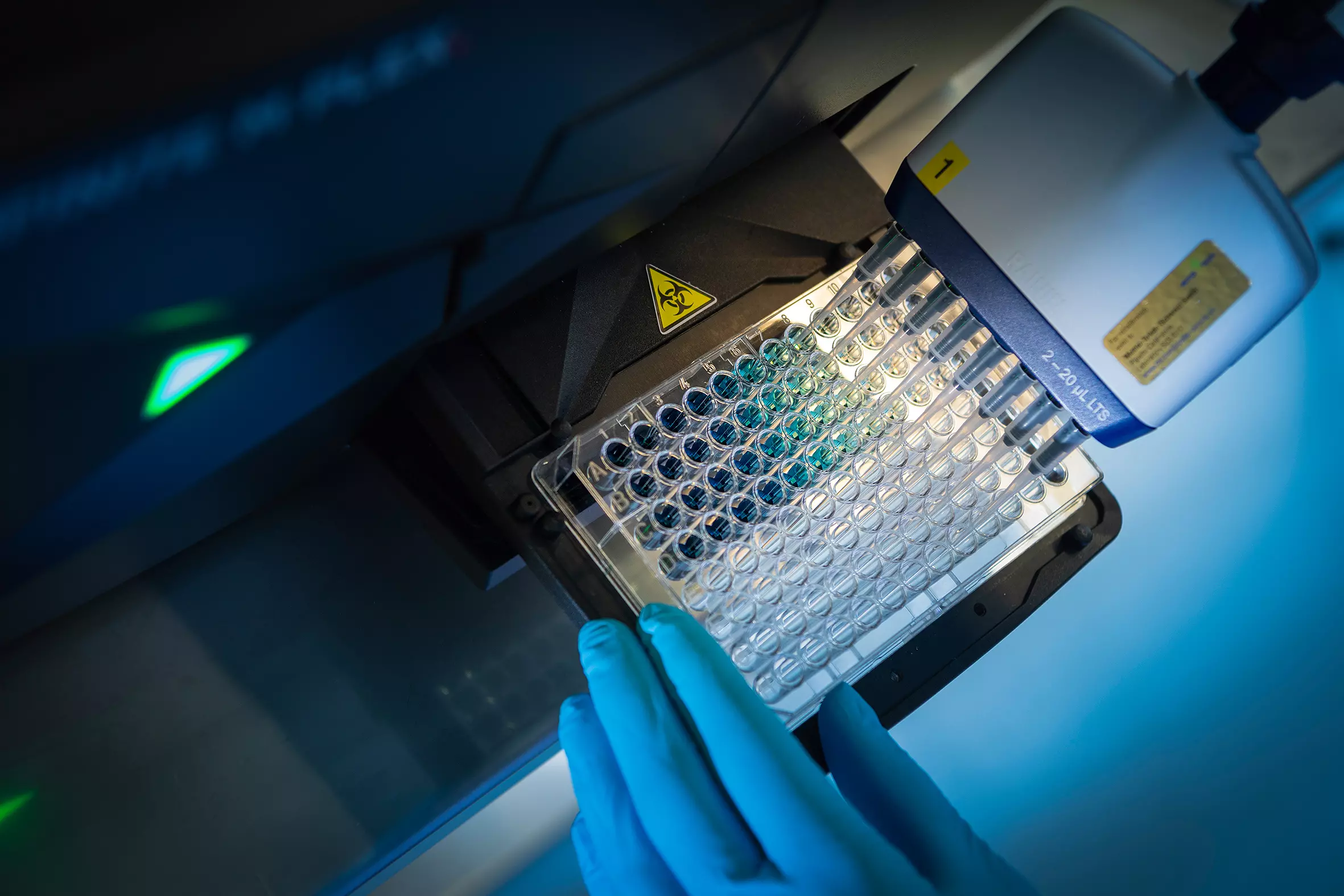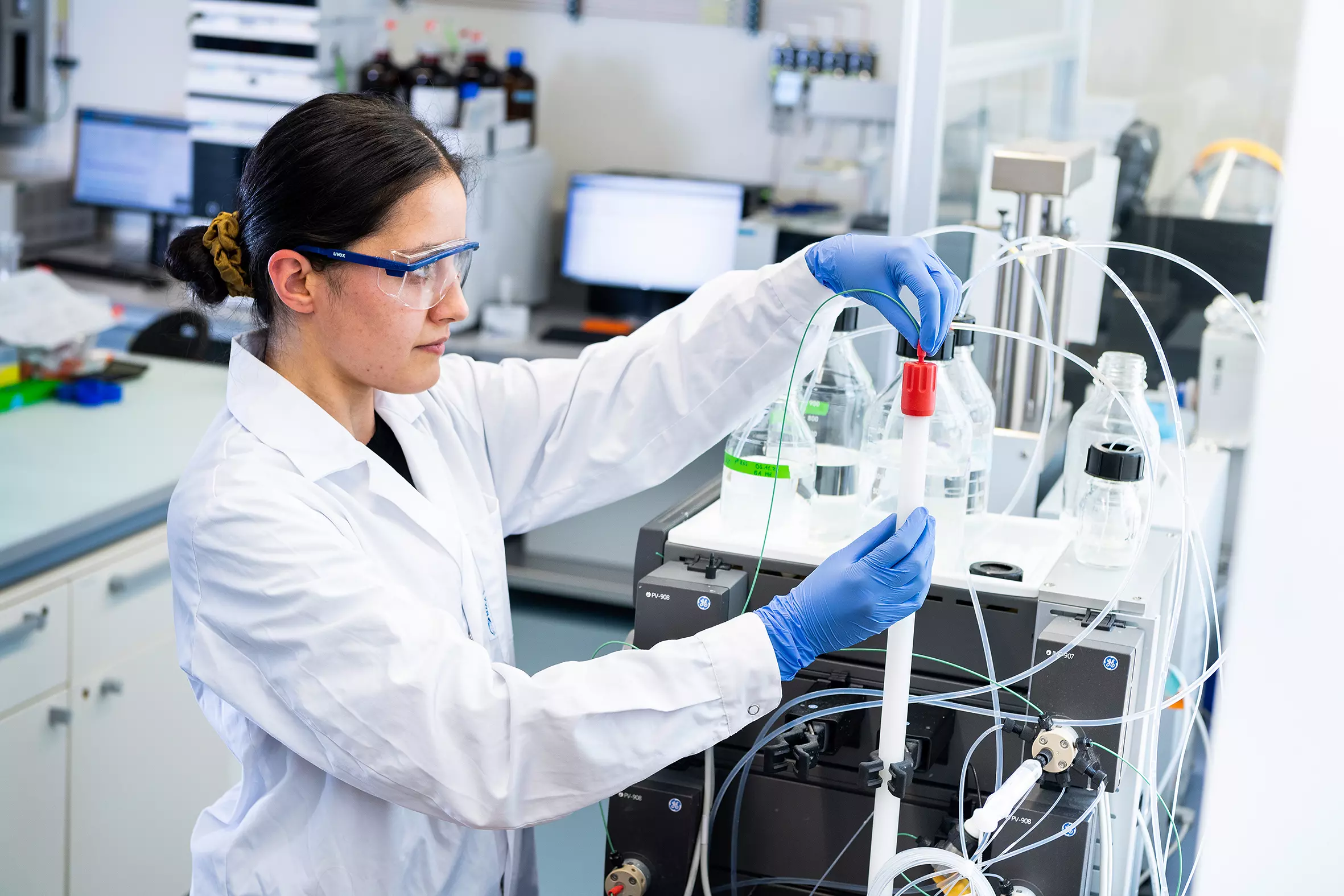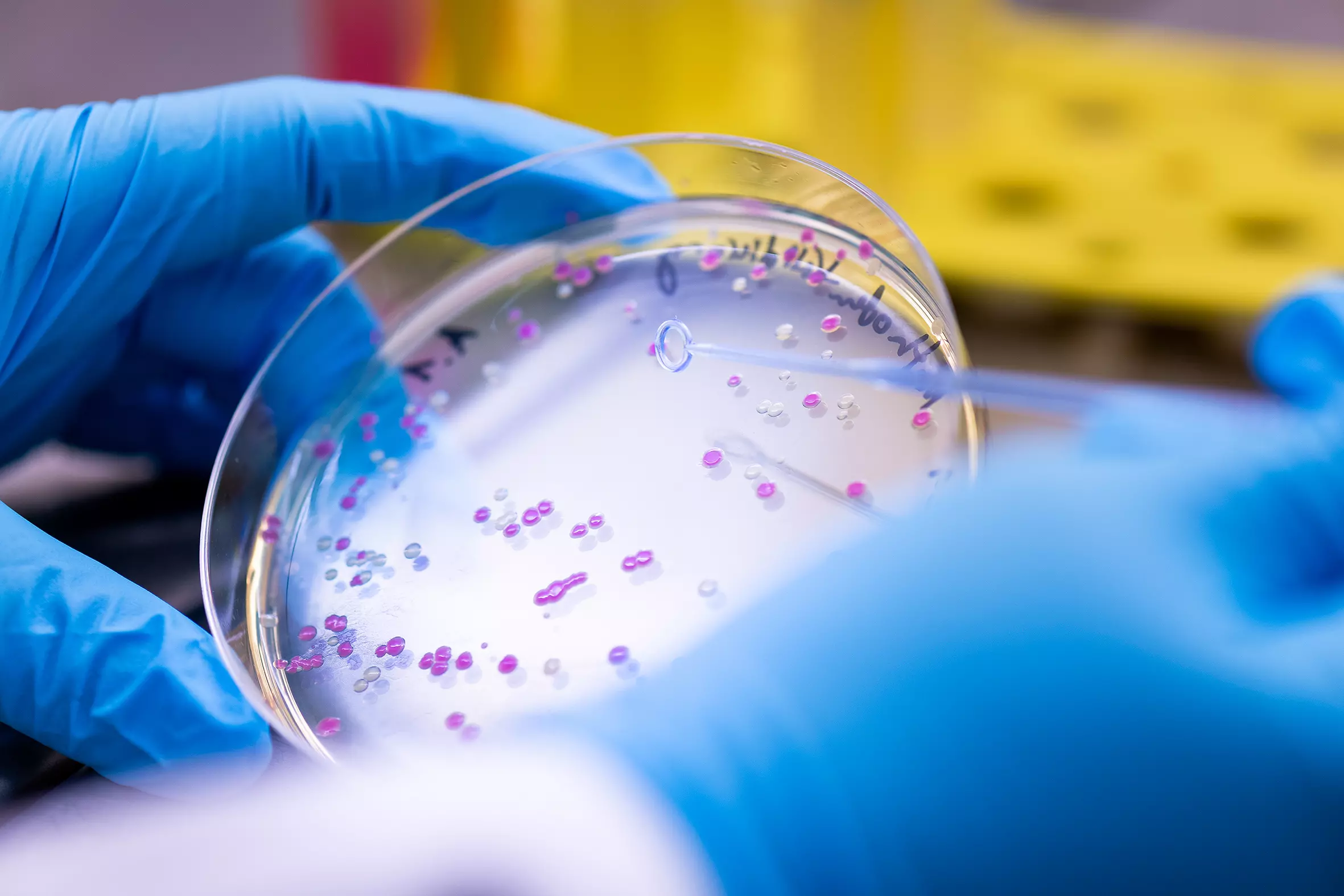Section of Biosystems Technology

«I am fascinated by the fact that we can theoretically combine an infinite number of different enzymatic reactions in one cell.»
Nature has developed an immensely powerful system of cascade reactions that enables metabolic pathways within complex metabolic networks, and thus life. The living cell is essentially a single-vessel system that allows a broad variety of multistep enzymatic reactions in aqueous medium. In particular, cellular metabolism emphasizes the advantage of multistep cascade reactions: selective product formation is achieved despite principally absent separation of metabolic intermediates. Transferring the concept of multistep reactions to organic synthesis allows saving time, costs and waste compared to conventional step-by-step processes due to the elimination of intermediate purification steps. Often, cascade reactions can be used to increase the overall yield and improved the atomic balance. Highly significant advantages in comparison to step-by-step processes are demonstrated when handling toxic or unstable intermediates, which in cascades are directly converted into stable and non-toxic substances.
The combination of enzyme cascades along with synthetic biology makes it possible to design specific and excellent production strains that allow production of the desired substance in large scale. For this purpose, our research group has the possibility of up-scaling diverse processes up to 30 L fermentation.
We look forward to new collaborations at any time, just contact us!
Projects and collaborations
- Establishment of an enzyme cascade for the production of 2,6-Dimethyl-5-heptenal
- Design of ADH-deficient strains for whole cell biocatalysis
- Plasmid-Toolbox for enzyme cascades
- Exploration of gene harmonization
- Optimization of recombinant enzyme expression and purification (confidential)
- Optimization of recombinant structural protein expression and purification (confidential)
Competences

The Biosystems Technology Group brings together different expertise that allows succeeding all necessary process steps during enzyme cascade preparation.
This includes
- strain and expression vector design, preparation and optimization;
- lab-scale process optimization as well as scale-up;
- protein purification, biocatalysis development and optimization;
- and also screening methods in 96-well format or by MS-based analytics, involving also data analysis.
Research topics
Fermentation
We are equipped with 5, 10 and 30 liter reactors for fermentation of diverse organisms, supporting scale-up of fermentation processes. The biomass is either directly applied in whole cell biocatalysis, or in protein overexpression with subsequent purification.
Enzyme cascades
Enzyme cascades and whole cell biocatalysis are an emerging strategy for sustainable production of various chemical compounds. Major process benefits such as mild reaction condition, regio-, stereo- and enantiomeric specificity, as well as emission of intermediate purification render the approach highly promising for future application in industry. We pursue different design strategies, such as whole cell and cell surface display biocatalysis to establish efficient enzyme cascades. Success is monitored by different photometric assays or GC/ HPLC-MS-based analytics.
Protein production
Protein are highly valuable compounds for a wide variety of applications. We are experts in overexpression and purification of different protein types, ranging from enzymes to structural proteins. We apply state-of-the art techniques and adapted strategies specific to the protein of interest.
Genetics and whole cell cascade optimization
Microbial strain engineering can be crucial for an efficient whole cell enzyme cascades. Furthermore, the enzymes cascade itself needs to be fine-tuned to support efficient conversion to the desired product. Accordingly, we apply state-of-the-art genetic techniques to design suitable production strains. To design optimized enzyme cascades we rely on Modular Cloning which is based on Golden Gate Cloning, This approach supports highly modular design of cascade enzymes. Furthermore, we develop screening methods to identify the most successful production strains and cascade setups.



